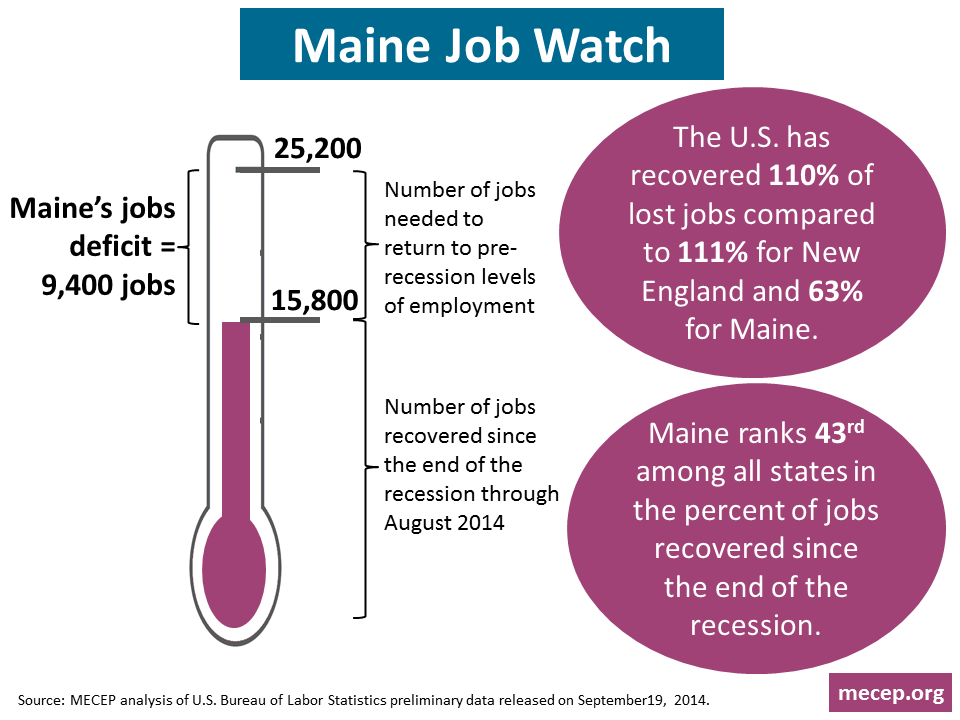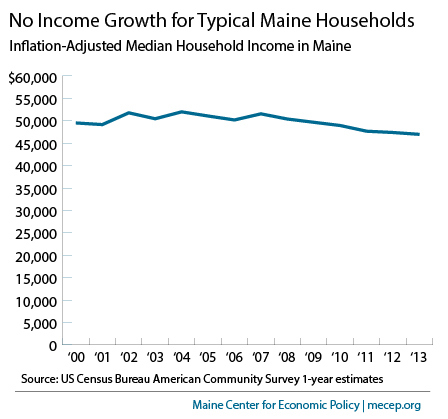For months, we’ve written about Maine’s anemic economic recovery relative to the rest of the country. Today’s August jobs report does little to change that story. Maine has recovered just 63 percent of the jobs lost during the Great Recession and still ranks 43rd among all states and Washington, DC in its jobs recovery. By contrast, the US has recovered 110 percent of jobs lost in the recession and New England has recovered 111 percent.
The headline for today’s jobs data is that Maine’s unemployment rate ticked up slightly to 5.6 percent in August from 5.5 percent the month before. In truth, the August figure could just as easily be the same or lower than it was in July. A 0.1 percentage point change in Maine’s unemployment rate from one month to the next is not that statistically meaningful. Longer term trends are what matter. Still, today’s number bucked the trend of declining unemployment which we’ve observed in Maine and across the country for almost four years now. Only time will reveal whether we return to this trend in the coming months or see stagnant or increasing unemployment.
For most Maine people, such statistics have little bearing on their lives as they work hard to provide for themselves and their families. The unemployment figure masks the sad reality that more than 40,000 Mainers face. They want full-time work but can’t find it. Maine has the 6th highest percentage of these “involuntary” part-time workers in the nation. Fifty thousand more Mainers continue to struggle without success to find any work. The bottom line is that Maine’s economy is still not creating enough jobs to go around.
The other elephant in the room is that the jobs that are available don’t necessarily pay enough for Maine families to make ends meet today and invest for their future. Based on data released earlier this week by the US Census Bureau, median household income in Maine in 2013 was $46,974. That’s $2,300 below what it was in 2009 adjusted for inflation.
There are plenty of examples of where Maine has left jobs on the table in recent years. The most obvious is the state’s refusal to accept federal funds to provide health care to almost 70,000 Mainers. The state is losing almost $1 million a day in federal funds. More than 250 days into the year, that’s nearly $250 million – more than the economic impact of Maine’s wild blueberry industry or the 2012 payroll of Maine workers at the Portsmouth Naval Shipyard. Delays in issuing bonds have also cost the state jobs and undermined investments in research and development, roads and bridges, and other critical infrastructure.
We are not destined to slow growth in Maine, but today’s jobs report makes clear we’ve still got a long way to go.





